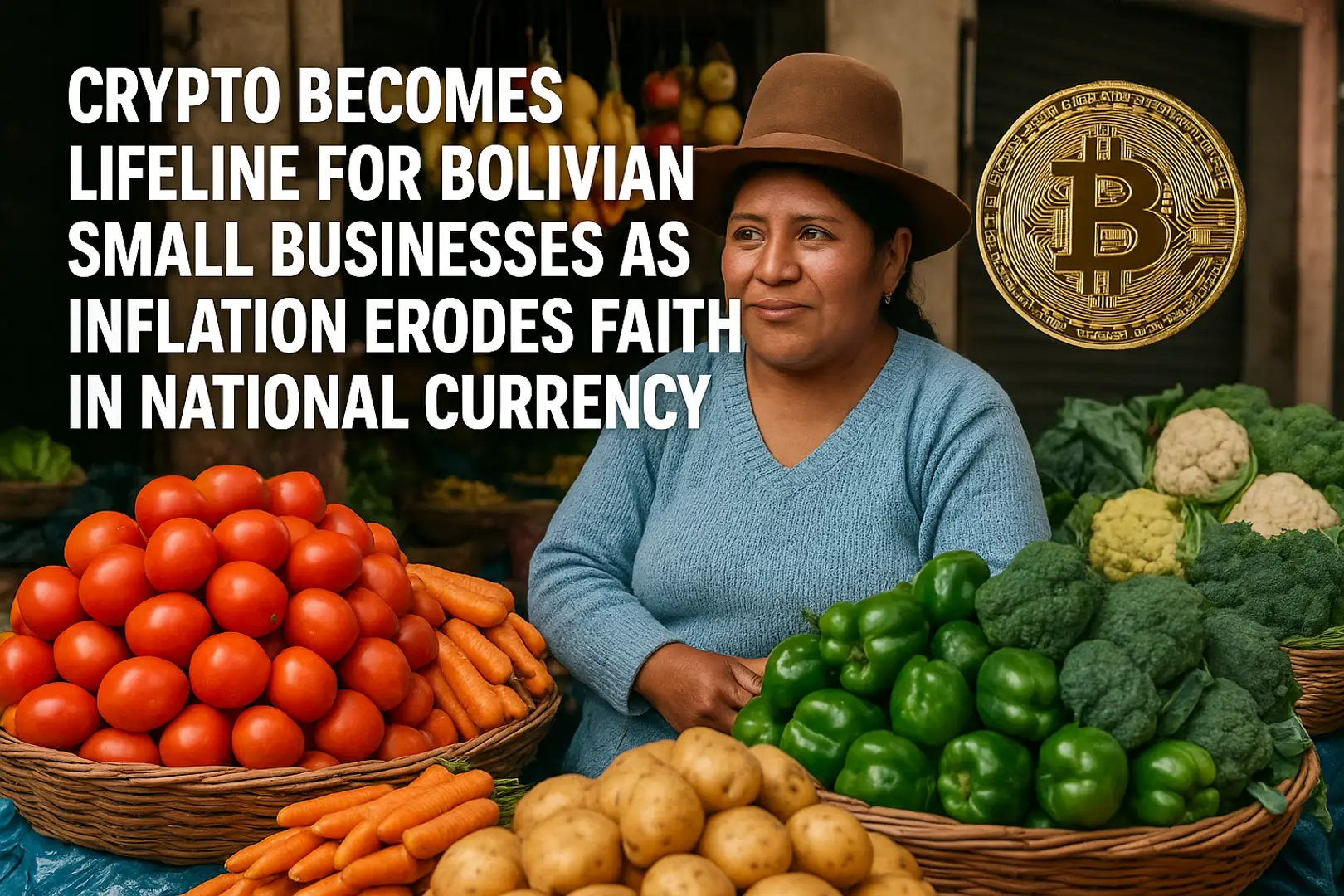

Crypto Becomes Lifeline for Bolivian Small Businesses as Inflation Erodes Faith in National Currency
June 27, 2025
As Bolivia’s economy buckles under the weight of historic inflation and collapsing confidence in the national currency, small businesses across the country are turning to cryptocurrency as a financial lifeline.
Restaurants, salons, and a growing number of neighborhood merchants have begun accepting Bitcoin (BTC) and stablecoins like Tether (USDT) as payment. According to a new report from Reuters, this grassroots adoption is accelerating rapidly, driven by mounting fears of a full-scale monetary collapse.

530% Surge in Crypto Transactions
Data from Bolivia’s central bank reveals that crypto transactions skyrocketed 530% in the first half of 2025 compared to the same period last year—jumping from $46.5 million to $294 million in total transaction volume.
This dramatic increase comes amid a deepening financial crisis. The Bolivian boliviano has lost over half its value on the black market, while the country’s central bank has run out of U.S. dollar reserves, paralyzing imports and access to foreign goods.
As a result, crypto assets—once considered speculative—are now seen as a store of value and medium of exchange more reliable than the official currency.
Stablecoins Step In as Dollar Shortage Worsens
With inflation surging and fuel shortages crippling daily commerce, Bolivians are increasingly using stablecoins like USDT to hedge against rapid currency depreciation.
According to Jose Gabriel Espinoza, former head of Bolivia’s central bank, daily USDT volumes have reached up to $600,000, signaling a notable shift in public trust toward decentralized and dollar-pegged digital assets.
While this figure still pales in comparison to the $12–$14 million daily turnover in the cash-based black market, the rate of crypto adoption is growing exponentially—a reflection of a broader breakdown in monetary confidence.
Crypto Emerges as a Parallel Economy
The adoption of crypto by Bolivia’s small business sector is more than a temporary workaround—it’s beginning to function as a parallel financial system, especially in urban centers where digital literacy and smartphone penetration are higher.
“For many small business owners, accepting crypto isn’t just innovative—it’s a matter of survival,” said one La Paz-based economist. “When your currency can’t buy fuel or food, people start looking for anything that can.”
A Warning Sign for Latin America?
Bolivia’s rapid crypto adoption could signal a broader trend across Latin America, where economic instability, currency devaluation, and limited access to dollars are already pushing citizens toward alternative financial systems.
For now, crypto in Bolivia is still a niche market, but its role is expanding fast. If the government fails to stabilize the currency and restore dollar liquidity, Bitcoin and stablecoins may soon become more than just an option—they could become a necessity.
Related Posts
© 2025 Invastor. All Rights Reserved

User Comments